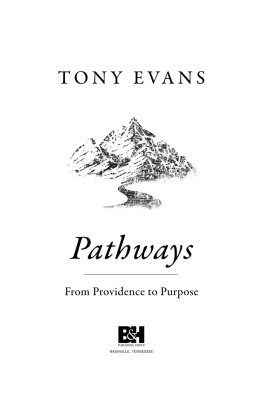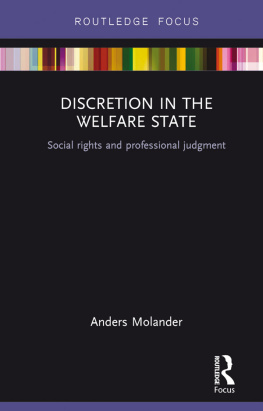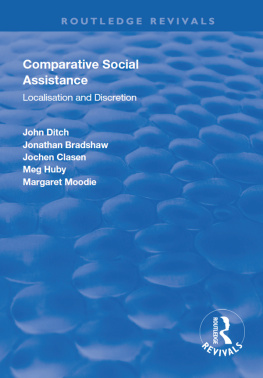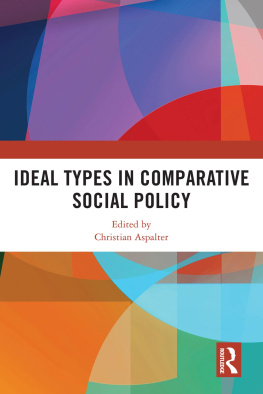PROFESSIONAL DISCRETION IN WELFARE SERVICES
Contemporary Social Work Studies
Series Editor:
Robin Lovelock, University of Southampton, UK
Series Advisory Board:
Lena Dominelli, University of Durham, UK
Jan Fook, University of Southampton, UK
Peter Ford, University of Southampton, UK
Lorraine Gutirrez University of Michigan, USA
Walter Lorenz, Free University of Bozen-Bolzano, Italy
Karen Lyons, London Metropolitan University, UK
Joan Orme, University of Glasgow, UK
Jackie Powell, University of Southampton, UK
Gillian Ruch, University of Southampton, UK
Contemporary Social Work Studies is a series disseminating high quality new research and scholarship in the discipline and profession of social work. The series promotes critical engagement with contemporary issues relevant across the social work community and captures the diversity of interests currently evident at national, international and local levels.
CSWS is located in the School of Social Sciences (Social Work Studies Division) at the University of Southampton, UK and is a development from the successful series of books published by Ashgate in association with CEDR (the Centre for Evaluative and Developmental Research) from 1991.
Other titles in this series:
Social Work and Migration
Immigrant and Refugee Settlement and Integration
Kathleen Valtonen
ISBN 978 0 7546 7194 7
Indigenous Social Work around the World
Towards Culturally Relevant Education and Practice
Edited by Mel Gray, John Coates and Michael Yellow Bird
ISBN 978 0 7546 4838 3
For information about other titles in this series, visit www.ashgate.com
Professional Discretion in Welfare Services
Beyond Street-Level Bureaucracy
TONY EVANS
University of Warwick, UK
First published 2010 by Ashgate Publishing
Published 2016 by Routledge
2 Park Square, Milton Park, Abingdon, Oxon OX14 4RN
711 Third Avenue, New York, NY 10017, USA
Routledge is an imprint of the Taylor & Francis Group, an informa business
Copyright Tony Evans 2010
Tony Evans has asserted his right under the Copyright, Designs and Patents Act, 1988, to be identified as the author of this work.
All rights reserved. No part of this book may be reprinted or reproduced or utilised in any form or by any electronic, mechanical, or other means, now known or hereafter invented, including photocopying and recording, or in any information storage or retrieval system, without permission in writing from the publishers.
Notice:
Product or corporate names may be trademarks or registered trademarks, and are used only for identification and explanation without intent to infringe.
British Library Cataloguing in Publication Data
Evans, Tony.
Professional discretion in welfare services : beyond street-level bureaucracy. -- (Contemporary social work studies)
1. Social service--Moral and ethical aspects. 2. Social work administration--Moral and ethical aspects. 3. Lipsky,Michael. Street-level bureaucracy.
I. Title II. Series
361.3068-dc22
Library of Congress Cataloging-in-Publication Data
Evans, Tony.
Professional discretion in welfare services : beyond street-level bureaucracy / by Tony Evans.
p. cm. -- (Contemporary social work studies)
Includes bibliographical references and index.
ISBN 978-0-7546-7491-7 (hardback) -- ISBN 978-1-3156-0232-5 (ebook) 1. Social work administration. 2. Administrative discretion 3. Social workers. 4. Social service. I. Title.
HV41.E964 2010
361.0068--dc22
2010007091
ISBN 9780754674917 (hbk)
ISBN 9781315602325 (ebk-PDF)
ISBN 9781317075363 (ebk-ePUB)
Contents
Er cof am fy rhieni Blodwen a Richard Evans
List of Figures
Figures
Table
Introduction
Professional discretion has re-emerged as a key issue in current social work. It encapsulates the tension in current policy between the increasing regulation of practice and the need for practitioners initiative and creativity in policy implementation. In this book I want to explore professional discretion in the context of contemporary welfare services; specifically the example of social work in social services.
This book reflects the development of my thinking about discretion in welfare bureaucracies and the roles played by managerialism and professionalism in the structuring of discretion. My interest in professional discretion has developed over the past two decades, in the context of a developing management culture in public services, and reflects my critical engagement with key ideas encountered as I struggled, first as a practitioner and then as a researcher, to understand discretion in contemporary social service.
A key approach to the study of discretion is Lipskys street-level bureaucracy theory, and this perspective has re-emerged as a significant point of debate in the analysis of the impact of managerial reforms of public services. An important aspect of these reforms has been the attempt to curtail professional discretion in the organisation and delivery of services. New Labours Modernisation programme, for instance, has seen an intensification of this aspect of managerial reform but, at the same time, there has been a growing political and academic debate about the problems of centralised control and direction of services and its impact on local responsiveness and professional autonomy.
My starting point, then, is a critical examination of Michael Lipskys account of discretion in his seminal study of street-level bureaucracies (Lipsky 1980). His work challenges a significant strand in the contemporary analysis of social work discretion in that he points to the continuation of extensive day-to-day discretion of street-level bureaucrats such as social workers (Evans and Harris 2004a, Turbett 2009). While I start with Lipsky, I seek neither to defend nor to dismiss the street-level perspective, but rather aim to use it to stimulate critical thinking about the extent and basis of professional discretion within social work, as the introduction to an empirical study of discretion.
There is a growing recognition that social policy research needs to be grounded in street-level experience (McDonald and Marston 2005, Mead 2005) and, accordingly, this study reports empirical research the goal of which has been both to evaluate ideas of discretion in the field and, recognising the role of serendipity in research, to be sensitive to: the complexity of what one learns in the field [and to be open to] ideas that fall outside the existing literature (Mead 2005: 543).
Investigating Discretion
Discretion is a difficult idea to pin down. The term is used in different ways in different contexts (Smith 1981, Evetts 2002). One possible approach would be to examine the full range of definitions and to choose one as correctthough this raises the further problem of how to determine a correct definition. Furthermore, Smith warns against attempts at extended












